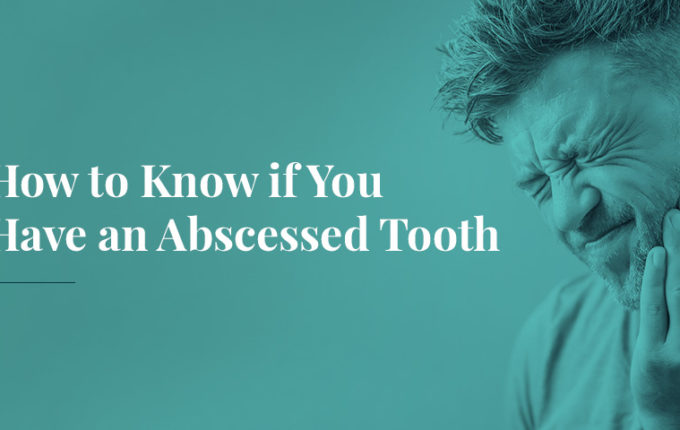Why Does My Root Canal Hurt?

What’s Ahead
- Root Canal Pain Symptoms
- Reasons for Root Canal Pain
- Remedies for Continued Root Canal Pain
- How to Know if you Have a Failed Root Canal
A root canal is a procedure that helps clean out decay from an infected tooth, helping to preserve it so a patient can continue to use the tooth. A root canal procedure involves extracting decay and bacteria from the pulp, nerve and root, filling the empty area and sealing it to prevent additional decay. Root canal procedures can provide patients with pain relief from an infected tooth while also preventing the infection from spreading.
However, a root canal can make a tooth more fragile. Dentists at Midtown Endodontist NYC often cover the treated tooth with a crown to prevent it from breaking, adding supportive strength so patients can continue using their tooth. Some people can experience complications after the treatment and wonder why their root canal still hurts post-treatment. If you’ve had a root canal and your tooth still hurts, it could be a sign of a root canal failure.
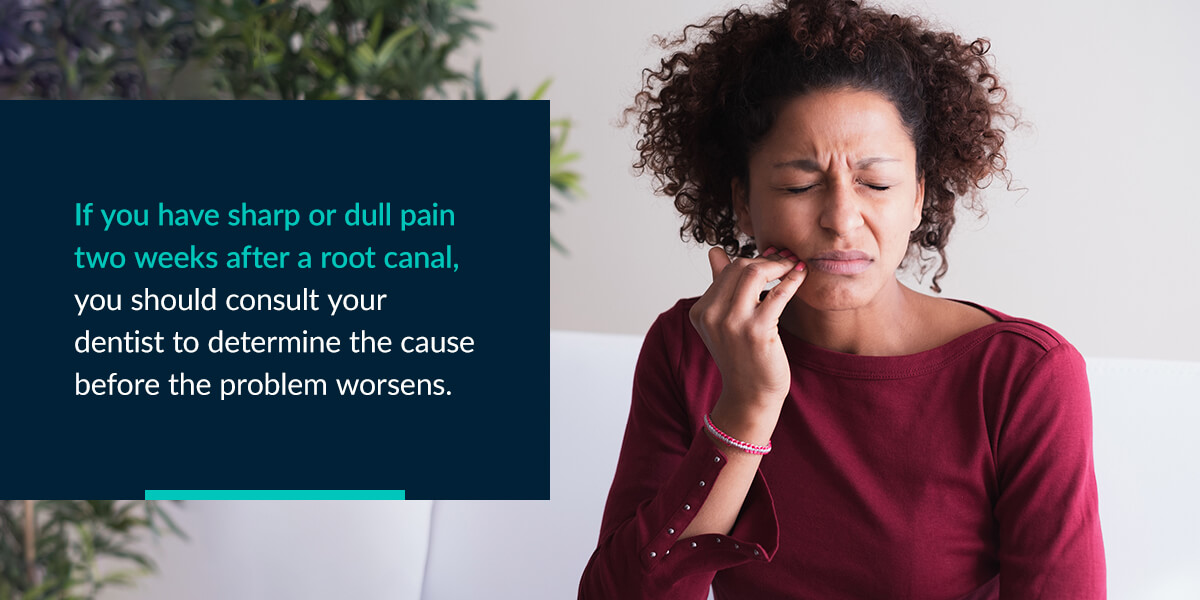
Root Canal Pain Symptoms
Most people can tell immediately if they need a root canal since infected teeth are often painful. Some of the symptoms that indicate you need a root canal include:
- Consistent pain: Many dental conditions can cause pain, but infected or exposed nerves can be particularly painful. Signs you need a root canal include pain that radiates to other teeth, your face or jaw.
- Swollen or tender gums: Due to inflammation from infection or an exposed nerve, a sign you could need a root canal is swelling or tenderness in your gums. You may even notice that the gums around your affected tooth are redder than usual.
- Temperature sensitivity: Many people experience sensitivity to hot or cold food and drinks when they need a root canal. While not all temperature sensitivity indicates you need a root canal, it’s best to check with your dentist to determine the cause.
- Sensitivity to touch: In addition to sensitivity to temperatures, you may also experience sensitivity to touch, resulting in pain during eating, brushing or flossing.
- Tooth damage: If your tooth is cracked or broken, it can leave your tooth canal and pulp vulnerable to bacteria and infection. If you’ve damaged your tooth, you should consult your dentist to determine if a root canal is the right course of action.
For some people, a root canal hurts afterward. Most people experience minor pain and discomfort immediately after their surgery. If you have sharp or dull pain two weeks after a root canal, you should consult your dentist to determine the cause before the problem worsens. While you can expect a tooth to hurt after a root canal, if the pain persists for weeks or returns, you should consult your dentist to determine the cause.
Reasons for Root Canal Pain
After a root canal, you expect to find relief from your pain. However, many people wonder why their root canal tooth hurts after their procedure. Some people can experience pain in their teeth years after their root canal. While mild pain for a few days after the procedure is expected, pain that persists is not. A person might experience long-lasting pain after their root canal for several reasons, including the following:
- Occlusion: Patients with a high bite, misaligned teeth or pressure on the crown from abnormal activities could experience inflammation in their periodontal ligaments, which remain intact even after a root canal surgery. This inflammation can mimic tooth pain, but a dentist can quickly remedy this problem by adjusting the affected tooth.
- Endodontic: In some cases, some teeth can have more than one canal system, which can be missed during a root canal procedure, leaving some of the pulp tissue intact. When these canal systems remain intact, they can become inflamed or infected, which can be a reason for lasting pain after a root canal.
- Fractures: Root fractures can be challenging to diagnose but commonly cause pain post-procedure. Root fractures occur when part of the tooth’s root breaks off, which can be a significant cause of pain.
- Periodontal: The periodontium, or the connective tissue around a tooth, can cause pain after a root canal, especially if there are lesions. Patients may need a referral to a periodontist to find relief from periodontal pain after a root canal.
- Nonodontogenic: Sometimes, pain after a root canal isn’t related to your teeth. For example, cysts and lesions can cause pain to persist after a root canal. Some people can also experience phantom tooth pain after a root canal procedure.
Remedies for Continued Root Canal Pain
If you experience pain after your root canal, it could be part of the healing process, especially if the pain is present immediately after your procedure. Pain lasting two weeks or more could indicate a more significant problem. You can try a few methods to treat continued root canal pain at home:
- Cold compress: Using a cold compress, such as a cold, damp towel or a bag of ice, can help with any swelling you might experience that’s contributing to your pain. Keep the compress in place for about five minutes and repeat every 15 minutes until your pain and discomfort subside.
- Over-the-counter (OTC) medication: You can also try OTC medications to help with inflammation and pain, such as ibuprofen or Advil. You can also try Orajel, a numbing medication you put on your gums.
- Saltwater rinse: You can create saltwater rinse at home by adding 1 teaspoon of salt to 1 cup of warm water. Gargle salt water to help with inflammation and prevent bacterial infections.
- Soft foods: If you experience continued root canal pain, try to prevent any unnecessary damage and pain until you know the cause. Until you can see your dentist, you should eat soft foods that don’t require much chewing, such as mashed potatoes, yogurt and gelatin.
- Elevation: While sleeping, keep your pillow elevated to reduce inflammation, swelling, throbbing and pain. Elevating your head can also prevent any bleeding post-treatment.
How to Know if You Have a Failed Root Canal
Some people don’t notice the signs of a root canal failure right away. A failed root canal occurs when not all of the infection is removed or the tooth becomes infected again. It can take weeks, months or even years to notice that a root canal has failed. If you’ve had a root canal and are wondering if it’s failed, these signs indicate you need to return to your dentist:
- Tooth discoloration
- Neck or facial swelling
- A boil or pimple on the tooth
- Sensitivity when biting down
- Tender gums around the treated area
- Pus-filled abscesses near the treated tooth
- Pain in the treated tooth caused by pressure
- Swelling of the gums on or near the affected tooth
Remember that some pain in the first few days after a root canal is normal. You could feel some minor discomfort for several days before it dissipates. If you have sharp or persistent pain in the tooth with a root canal after months or years, it could be a sign that your root canal has failed. Your dentist can perform X-rays to diagnose a root canal failure and guide you through the next steps.
Schedule an Appointment for Root Canal Pain Relief at Midtown Endodontist NYC Today
BOOK AN APPOINTMENT
Visit Midtown Endodontist NYC to Find Relief From Root Canal Pain
If you suspect you have a failed root canal, the professionals at Midtown Endodontist NYC can help. We offer root canal retreatment for patients who have undergone a root canal procedure but are still experiencing symptoms in the weeks, months or years following their treatment. We use cutting-edge treatment methods to care for teeth that develop symptoms after an initial root canal, helping our patients find relief from their pain.
We’ll guide you through each step of the process and provide treatment options to help you improve your oral health. We also offer free consultations to help you better understand what treatments you need moving forward. Contact us today to learn more about our services and how we can help you achieve your oral health goals!
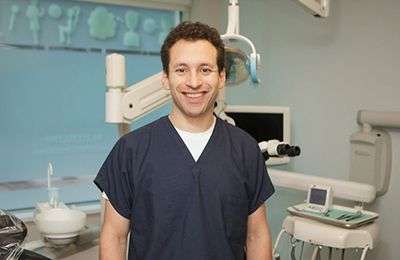 Our Providers
Our Providers
 Blog
Blog
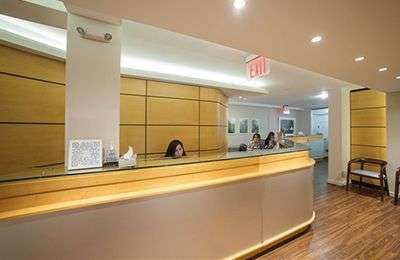 Contact us
Contact us
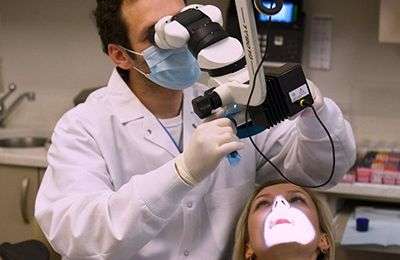 Endodontics
Endodontics
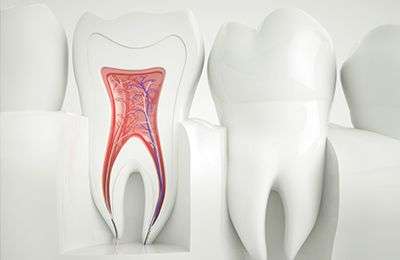 Root Canal Treatment
Root Canal Treatment
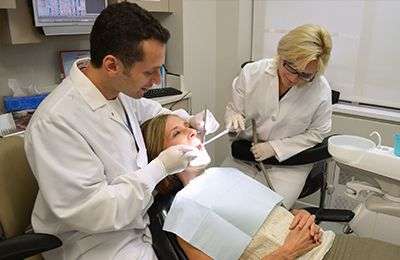 Emergency Root Canal
Emergency Root Canal
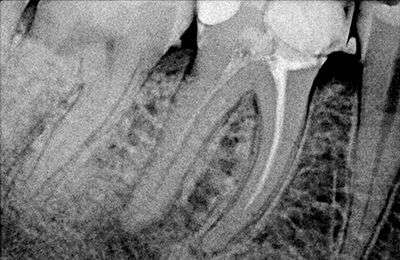 Root Canal Retreatment
Root Canal Retreatment
 Complimentary Teeth Whitening
Complimentary Teeth Whitening
 Teeth Whitening
Teeth Whitening


